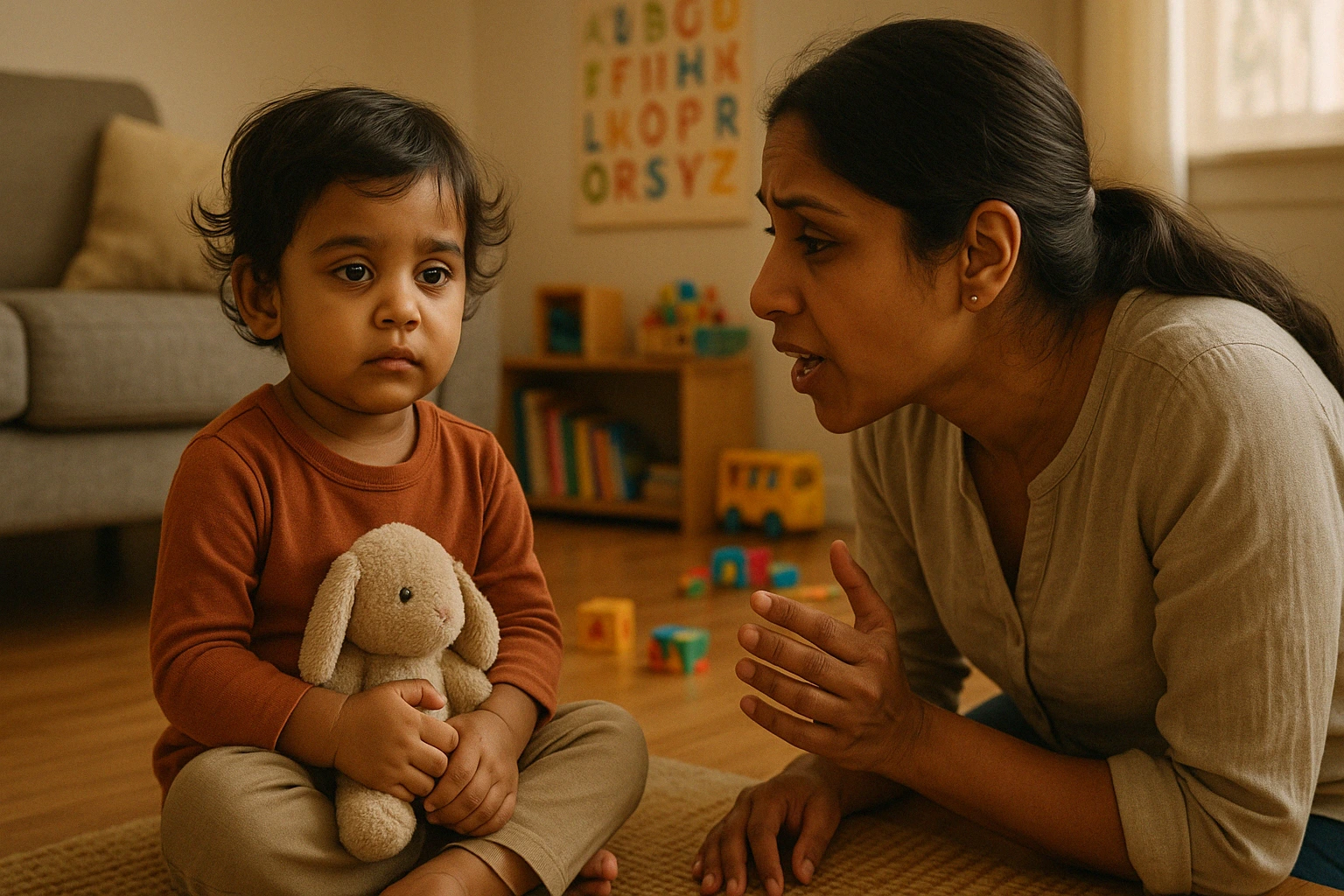What are Speech Development Milestones?
Source: stepbystepmontessori
What are Speech Development Milestone?
Communication skills are extremely important for the overall wellbeing of the child. The domain of speech and language development also follows a set predictable pattern. Which implies that children must acquire age-related Speech Development Milestone to ensure that their progress is on track. With initially cooing to babbling leading to one word and then moving on to coherent sentences each child must be monitored to make sure that their speech is clear and there is no possibility of any speech disorder.
Speech Development Milestone give a detailed framework of what has to be expected from each child with regards to speech development and ensuring that there is no potential risk of ay language disorder.
For more information on a Diploma in SEN Call/Whatsapp at +919321024137 / +919869866277
To download the brochure of the Diploma in SEN, Click here!
Table of Content
What is Normal Development of Speech?
Just like any other domain of development there is a determined structured progression in speech that appears at different ages. Speech development milestone begins with just plain sounds which helps the child display his emotions and needs clearly.
When the child follows the structured pattern attaining milestones at their appropriate age the child the possibility of any language disorder is ruled out.
Early Speech Development (Birth to 12 Months)
Birth to 6 Months
Babies start cooing expressing their presence and ensuring that they can grab attentions. They begin recognizing familiar voices and experimenting with different vocal sounds.
6 to 12 Months
The baby can now use single words Babbling becomes structured, with repetitive sounds like “ba-ba” or “da-da.” Babies recognize simple words, respond to their name, and try to imitate speech.
Toddler Speech Development (12 to 24 Months)
12 to 18 Months
First words appear, with toddlers associating words with objects or people. They use simple words like “mama,” “dada,” and “ball” and follow basic instructions with gestures.
18 to 24 Months
Vocabulary expands to 50 or more words. Toddlers start combining two words into short phrases like “more milk” or “go park” and understand simple directions.
Preschool Speech Development (2 to 5 Years)
2 to 3 Years
Sentences become longer, and toddlers use pronouns like “I” and “you.” Their speech is more understandable, and they begin asking questions.
3 to 4 Years
Sentences grow more complex, with four or more words. They tell simple stories, express emotions, and understand most spoken language.
4 to 5 Years
Speech is mostly clear, with a well-developed vocabulary. They describe events, use correct grammar for their age, and have conversations with adults and peers.
Factors Influencing Speech Development
- Listening and interaction: Conversations and responses help language skills grow.
- Imitation and repetition: Children learn by copying sounds and words.
- Cognitive and social growth: Speech progresses alongside thinking and social interaction.
While Speech development milestone varies, recognizing delays can help ensure early support if needed.

Source: pinterest
Why Do Children Have Delayed Speech?
Most of the skills acquired by children are a result of proper processing powers of the brain and neural pathways. Any kind of problem or issues in any neural processing, physical injuries or even complications during birth can be a reason for the child’s delayed speech.
The speed of progress of the child’s language development may vary but repeated delays of speech milestones can lead to severe complications which have to be addressed at the earliest.
Here are some common causes of delayed speech:
Hearing Problems:
Children learn to speak by listening. In case of continual ear infections or medical issues the child can suffer from poor listening skills deterring them from producing proper sounds.
Muscular Oral Issues:
Many a times due to physical injuries or partly developed muscles needed for speech such as tongue can lead to issues to speak properly.
Autism and other Disorders:
developmental disorders such as autism spectrum disorder is a major cause for poor speech in children.
Learning or Intellectual disorders:
when the child is facing intellectual disorders the cognitive development is hampered due to which the child faces severe struggling to understand sounds and reply correctly to them.
Poor Social Interaction:
When the child has speech issues, they will not interact freely that limits their social bonding limiting their conversation powers.
Neurological Disorders:
Conditions like cerebral palsy and other genetic conditions can lead to speech struggles.
Being able to detect any possible Speech Disorder is the first significant step to kickstart the Remedial Interventions and offer the child a conducive environment for the child to interact freely without the fear of being judged or mocked that helps to enhance their language skills.
For more information on a Diploma in SEN Call/Whatsapp at +919321024137 / +919869866277
To download the brochure of the Diploma in SEN, Click here!

What are the Signs of Speech Delay?
Identifying the markers of speech delay at the earliest provide children get the support they need to enhance strong communication skills. While children develop speech at their own pace, some symptoms may show a delay that requires attention.
Identification of speech delay symptoms ensure that children get the assistance they require to build effective communication skills. Although children acquire speech at their own rate, but there are markers that signal delay which should be addressed.
Typical Indications of Speech Delay:
Restricted Babbling:
Infants usually make different sounds By six months a delay in babbling or cooing indicates speech concerns.
Few Words by Age One:
Typically kids can say single word like “mama” or “dada” by the time they turn one year old. It could be concerning if a child is not speaking at all.
Common Indications of Speech Delay:
Restricted Babbling:
Babies at six months old normally produce a range of sounds. Failure to babble or coo may be an indicator of delay.
Difficulty Combining Words:
By age two, children typically begin putting two words together, such as “want milk. Struggling with this could indicate a delay.
Slower Vocabulary Growth:
A difference in the number of words a child uses compared to other children can mean language development is delayed.
Not responding to their name being called out:
When the child’s name is being called there is no reaction or response from the child.
Not understanding 2 letter instructions:
Not being able to comprehend 2 letter instructions such as ‘come here’ or get this.
When some of the above signs are noticed in the child it is suggested that the parents should consult a speech consultant or therapist to initiate the necessary remedial interventions.

How to Teach a Speech Delay Child?
It takes patience, consistency and the right strategies to help your child with his speech delay. No two children are the same and some may develop quicker than others however early intervention can be just that, the right time to act. You could also take a Special Education Needs Course offered by Vidhyanidhi Education Society (Govt. Regd.) which can cover specifics on the development of speech as well as strategies for effective teaching.
Supporting a speech-delayed child involves perseverance, and the appropriate. Although rate of development for each kid differs, early intervention can be a game-changer if there are delays. Joining a Special Education Needs Course can give important perspectives on speech development and efficient teaching strategies.
Strategies for Assisting a Child with Speech-Delays:
- Encourage Interaction: Special Education Needs Course Offer the child an opportunity to express themselves verbally, through gestures, or visually. Reinforce any communication efforts.
- Use Clear and Simple Language: Frame short sentences with clear speech and speak in a slow manner, so that they can hear and repeat words.
- Read Together Every Day: Reading books enables learning new words, enhances listening skills, and fosters Speech development milestone.
- Sing Songs and Rhymes: Using Melody is a fun activity for kids to practice pronouncing words correctly and to help them remember the usage of certain words
- Give Choices: Instead of yes/no questions, ask “Do you want an apple or a banana?” to encourage verbal responses.
Enroll in a Special Education Needs Course
Learning specialized techniques can equip parents and educators with tools to support speech-delayed children. Speech therapists and educators trained in Special Education Needs Courses can create personalized learning plans to support progress. With the right approach and resources, children with speech delays can develop strong communication skills over time.
Unlock your potential as a Special Edu with Vidhyanidhi Education Society’s Diploma in SEN today!
For more information on a Diploma in SEN Call/Whatsapp at +919321024137 / +919869866277
To download the brochure of the Diploma in SEN, Click here!
FAQs
At what age should a child speak clearly?
Most children can talk clearly enough for outsiders to understand by the time they are four years old, however some sounds might still not appear until six.
What age is normal for speech?
Infants begin to babble at around 6 months, followed by the first words by twelve months, and the formation of coherent sentences by three to four years.





